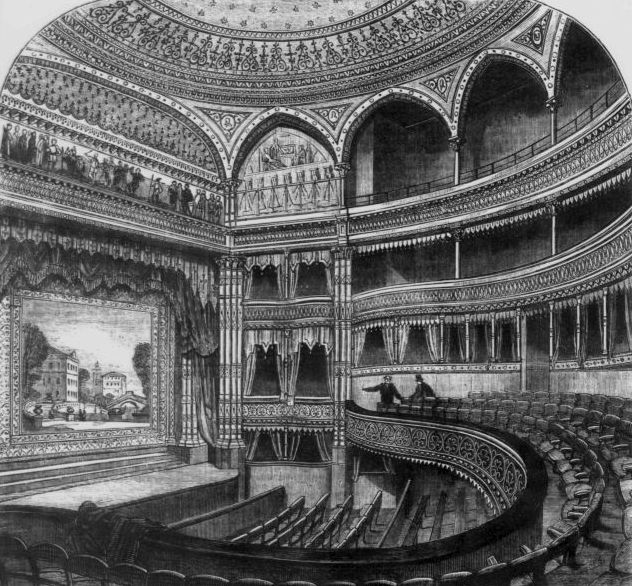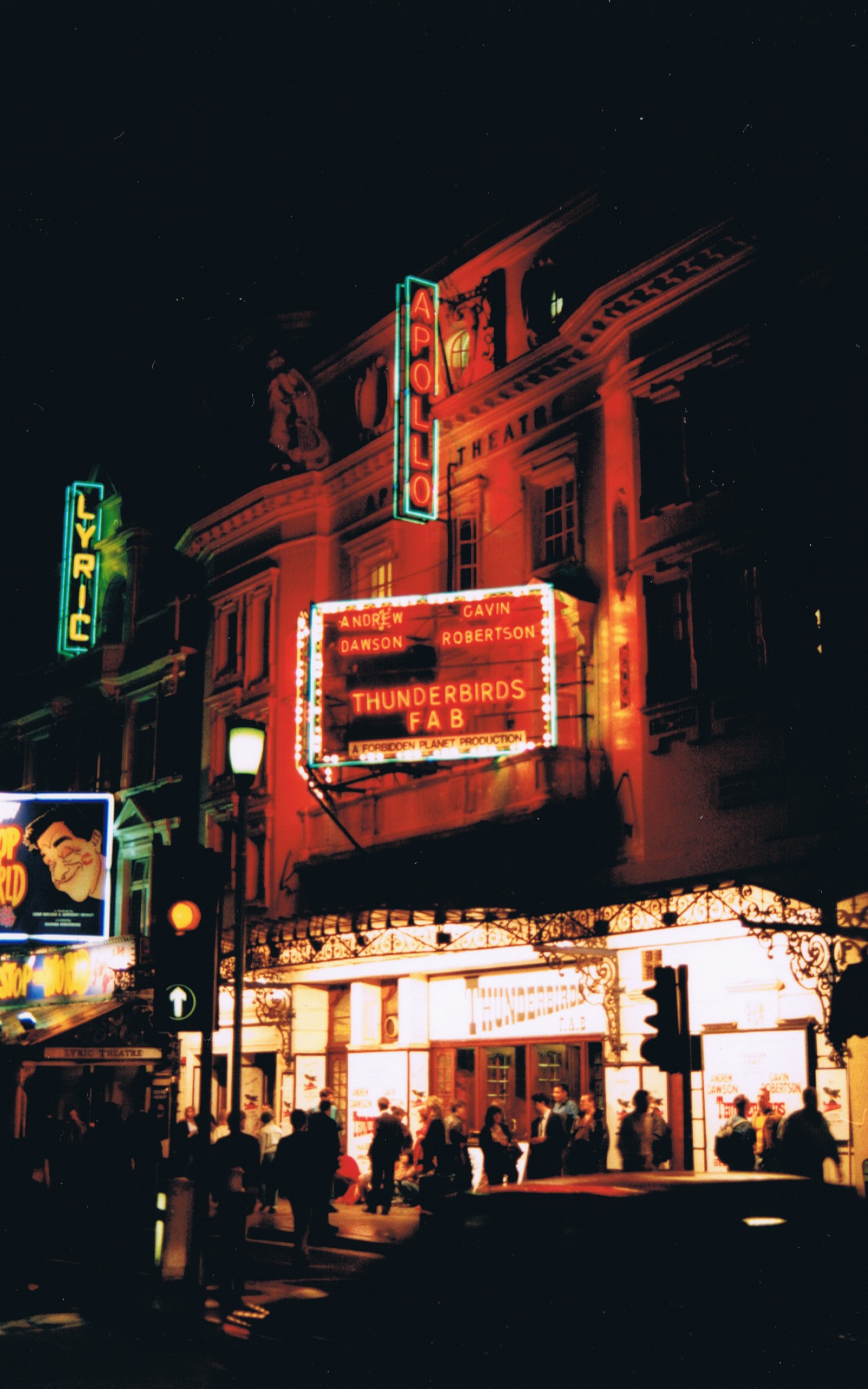|
Coralie Blythe
Coralie Blythe (born Caroline Maud Blyth; 28 January 1881 – 24 July 1928), was an English actress and singer, who is best remembered for her numerous postcard photos and her roles in Edwardian musical comedy. Although she never became a big star, she worked steadily in London's West End and in British provincial theatres from her teen years until after World War I, especially for producer George Edwardes, and had a few roles in America. She sometimes performed with her husband, Lawrence Grossmith, and her brother, Vernon Castle. Early life and career Born in Bow in London, she was the eldest of three children of William Thomas Blyth (born 1857), a publican, and his wife Jane (née Finley) (1862–1897), an actress. Her brother was the dancer Vernon Castle."Miss Coralie Blyth", ''The Times'', 27 July 1928, p. 16 Blythe's early theatrical appearances included West End roles replacing Marie Studholme as Gladys Stourton in the Edwardian musical '' A Gaiety Girl'' (1894) and i ... [...More Info...] [...Related Items...] OR: [Wikipedia] [Google] [Baidu] |
Bow, London
Bow () is an area of East London within the London Borough of Tower Hamlets. It is primarily a built-up and mostly residential area and is east of Charing Cross. It was in the traditional county of Middlesex but became part of the County of London following the passing of the Local Government Act 1888. "Bow" is an abbreviation of the medieval name Stratford-at-Bow, in which "Bow" refers to the bowed bridge built here in the early 12th century. Bow contains parts of both Victoria Park and the Queen Elizabeth Olympic Park. Old Ford and Fish Island are localities within Bow, but Bromley-by-Bow (historically and officially just "Bromley") immediately to the south, is a separate district. These distinctions have their roots in historic parish boundaries. Bow underwent extensive urban regeneration including the replacement or improvement of council homes, with the impetus given by the staging of the 2012 Olympic Games at nearby Stratford. History Bow formed a part of th ... [...More Info...] [...Related Items...] OR: [Wikipedia] [Google] [Baidu] |
Gaiety Theatre, London
The Gaiety Theatre was a West End theatre in London, located on Aldwych at the eastern end of the Strand. The theatre was first established as the Strand Musick Hall in 1864 on the former site of the Lyceum Theatre. In 1868, it became known as the Gaiety Theatre and was, at first, known for music hall and then for musical burlesque, pantomime and operetta performances. From 1868 to the 1890s, it had a major influence on the development of modern musical comedy. Under the management of John Hollingshead until 1886, the theatre had early success with ''Robert the Devil'', by W. S. Gilbert, followed by many other burlesques of operas and literary works. Many of the productions starred Nellie Farren. Hollingshead's last production at the theatre was the burlesque '' Little Jack Sheppard'' (1885–86), produced together with his successor, George Edwardes. Edwardes's first show, '' Dorothy'', became a long-running hit. In the 1880s and 90s, the theatre had further succes ... [...More Info...] [...Related Items...] OR: [Wikipedia] [Google] [Baidu] |
Banns Of Marriage
The banns of marriage, commonly known simply as the "banns" or "bans" (from a Middle English word meaning "proclamation", rooted in Frankish and thence in Old French), are the public announcement in a Christian parish church, or in the town council, of an impending marriage between two specified persons. It is commonly associated with the Catholic Church, the Church of Sweden (Lutheran), the Church of England (Anglican), and with other Christian denominations whose traditions are similar. In 1983, the Catholic Church removed the requirement for banns and left it to individual national bishops' conferences to decide whether to continue the practice, but in most Catholic countries the banns are still published. The purpose of banns is to enable anyone to raise any canonical or civil legal impediments to the marriage, so as to prevent marriages that are invalid. Impediments vary between legal jurisdictions, but would normally include a pre-existing marriage that has been neith ... [...More Info...] [...Related Items...] OR: [Wikipedia] [Google] [Baidu] |
The Play Pictorial
''The Play Pictorial'' was an English theatrical magazine that was published in London between 1902 and 1939. ''The Play Pictorial'' provided pictorial records of West End theatrical productions. Each issue described a single show, with descriptions of the plot, the costumes and the sets, and many photographs of the cast and scenes from the production. For musicals, ''The Play Pictorial'' usually included some of the lyrics and short extracts from the score Score or scorer may refer to: *Test score, the result of an exam or test Business * Score Digital, now part of Bauer Radio * Score Entertainment, a former American trading card design and manufacturing company * Score Media, a former Canadian m .... The first editor of ''The Play Pictorial'' was Rudolph Birnbaum. In May 1904, he was replaced by Frank M. Boyd. In 1905, Fred Dangerfield became editor, handling the next 20 issues. In 1905, ''The Play Pictorial'' merged with a rival magazine, ''The Play'', which had been ... [...More Info...] [...Related Items...] OR: [Wikipedia] [Google] [Baidu] |
Wyndham's Theatre
Wyndham's Theatre is a West End theatre, one of two opened by actor/manager Charles Wyndham (the other is the Criterion Theatre). Located on Charing Cross Road in the City of Westminster, it was designed c.1898 by W. G. R. Sprague, the architect of six other London theatres between then and 1916. It was designed to seat 759 patrons on three levels; later refurbishment increased this to four seating levels. The theatre was Grade II* listed by English Heritage in September 1960. History Wyndham had always dreamed of building a theatre of his own, and through the admiration of a patron and the financial confidence of friends, he was able to realise his dream. Wyndham's Theatre opened on 16 November 1899, in the presence of the Prince of Wales. The first play performed there was a revival of T. W. Robertson's ''David Garrick''. A number of successes followed, including Lena Ashwell playing the lead role in '' Mrs Dane's Defence'' in 1900, upon which Wyndham said that “''the app ... [...More Info...] [...Related Items...] OR: [Wikipedia] [Google] [Baidu] |
The Girl Behind The Counter
''The Girl Behind the Counter'' is an Edwardian musical comedy with a book by Arthur Anderson and Leedham Bantock, music by Howard Talbot and lyrics by Arthur Anderson (and additional lyrics by Percy Greenbank).''The Girl Behind the Counter'' Guide to Musical Theatre, accessed 21 July 2011 It opened at Wyndham's Theatre on 21 April 1906, produced by Frank Curzon and directed by . The farcical musical starred [...More Info...] [...Related Items...] OR: [Wikipedia] [Google] [Baidu] |
Apollo Theatre
The Apollo Theatre is a Grade II listed West End theatre, on Shaftesbury Avenue in the City of Westminster, in central London.English Heritage listing accessed 28 April 2007 Designed by the architect for owner Henry Lowenfeld, it became the fourth legitimate theatre to be constructed on the street when it opened its doors on 21 February 1901, with the American musical comedy '' [...More Info...] [...Related Items...] OR: [Wikipedia] [Google] [Baidu] |
The Toreador
''The Toreador'' is an Edwardian musical comedy in two acts by James T. Tanner and Harry Nicholls, with lyrics by Adrian Ross and Percy Greenbank and music by Ivan Caryll and Lionel Monckton. It opened at the Gaiety Theatre in London, managed by George Edwardes, on 17 June 1901 and ran for an extremely successful 675 performances. It starred Marie Studholme, Gertie Millar, Harry Grattan, Edmund Payne, George Grossmith, Jr. and the young Sidney Bracy. Gabrielle Ray later joined the cast. The show also enjoyed Broadway runs in 1902 and 1904 and toured internationally. Key songs include "Captivating Cora", "I'm Romantic", "When I Marry Amelia", "Keep Off the Grass", and "Archie". As was customary for musicals at the time, other songs were interpolated into the show. For example Christie MacDonald performed "Moon, Moon" in the show, which was written by Nathaniel D. Mann. Roles and original cast *Augustus Traill (of the British Consulate at Villaya) – Lionel ... [...More Info...] [...Related Items...] OR: [Wikipedia] [Google] [Baidu] |
Lyric Theatre, London
The Lyric Theatre is a West End theatre in Shaftesbury Avenue in the City of Westminster. It was built for the producer Henry Leslie, who financed it from the profits of the light opera hit, '' Dorothy'', which he transferred from its original venue to open the new theatre on 17 December 1888. Under Leslie and his early successors the house specialised in musical theatre, and that tradition has continued intermittently throughout the theatre's existence. Musical productions in the theatre's first four decades included '' The Mountebanks'' (1892), ''His Excellency'' (1894), '' The Duchess of Dantzig'' (1903), ''The Chocolate Soldier'' (1910) and '' Lilac Time'' (1922). Later musical shows included ''Irma La Douce'' (1958), '' Robert and Elizabeth'' (1964), '' John, Paul, George, Ringo ... and Bert'' (1974), '' Blood Brothers'' (1983), '' Five Guys Named Moe'' (1990) and '' Thriller – Live'' (2009). Many non-musical productions have been staged at the Lyric, from Shakespeare t ... [...More Info...] [...Related Items...] OR: [Wikipedia] [Google] [Baidu] |
The Illustrated Sporting And Dramatic News
The ''Illustrated Sporting and Dramatic News'' was a British weekly magazine founded in 1874 and published in London. In 1945 it changed its name to the ''Sport and Country'', and in 1957 to the ''Farm and Country'', before closing in 1970. History The ''Illustrated Sporting and Dramatic News'' was founded in 1874. The paper covered, as its title indicates, both sporting and theatrical events, including news and criticism. It also contained original pieces of fiction in serials and a story or two in each issue. There were numerous similar publications in Britain at the time, including the ''Illustrated London News'', which shared its address and some illustrators with the magazine.Victorian Illustrated Newspapers and Journals: Select list at |
The Messenger Boy
''The Messenger Boy'' is a musical comedy in two acts by James T. Tanner and Alfred Murray, lyrics by Adrian Ross and Percy Greenbank, with music by Ivan Caryll and Lionel Monckton, with additional numbers by Paul Rubens. The story concerned a rascally financier who tries to discredit a rival in love. After a tryout in Plymouth, it opened at the Gaiety Theatre in London, managed by George Edwardes, on 3 February 1900 and ran for a very successful 429 performances. Harry Grattan and Edmund Payne starred. Marie Studholme later joined the cast. It had a Broadway run of 128 performances, at Daly's Theatre, from 16 September 1901 to 4 January 1902. The director was Herbert Gresham, and the musical director was Louis F. Gottschalk. The cast included Georgia Caine as Nora, Jobyna Howland as Lord Punchestown, May Robson as Mrs. Bang and Flora Zabelle as Isabel Blyth. Rosie Boote, who played Isabel in the London cast, so charmed Geoffrey Taylour, 4th Marquess of Headfort, that h ... [...More Info...] [...Related Items...] OR: [Wikipedia] [Google] [Baidu] |






